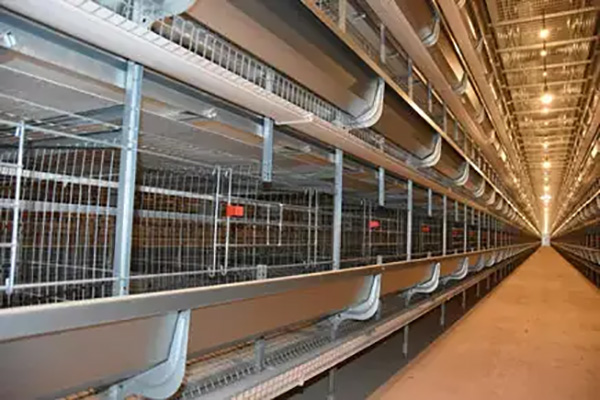Revolutionizing Kenyan Chicken Farming with Advanced Equipment Data Management Systems
Time : 2025-07-03
The Kenyan poultry industry has experienced significant growth in recent years, and with this growth comes the need for advanced equipment and data management systems. Chicken farming equipment and data management systems have become integral to ensuring efficiency, sustainability, and profitability in this dynamic sector. In this article, we will delve into the intricacies of Kenyan chicken farming equipment, the role of data management systems, and how they can be optimized for the industry.
The Evolution of Chicken Farming Equipment in Kenya
Kenyan chicken farming has come a long way from traditional methods. Initially, the industry relied on basic tools and techniques that were both time-consuming and labor-intensive. However, with technological advancements, farmers have started adopting modern chicken farming equipment, leading to improved production rates and overall efficiency.
Modern chicken farming equipment in Kenya includes:
– Brooder systems: Used to keep chicks warm during their first few weeks of life.
– Feeders and waterers: Designed to ensure that birds have access to clean, fresh feed and water at all times.
– Automatic lighting systems: Used to regulate the birds’ day and night cycles, influencing growth and egg production.
– Environmental control systems: Such as ventilation and heating, to maintain optimal temperatures and humidity levels.
The Importance of Data Management Systems
With the integration of advanced chicken farming equipment, data management systems have become essential for Kenyan farmers. These systems provide real-time insights into the performance of the farm, enabling farmers to make informed decisions that can lead to improved yields and profitability.
Data management systems can be categorized into the following types:
– Farm management software: Used to monitor various aspects of the farm, such as production, feed consumption, and mortality rates.
– Sensors and IoT devices: Collecting data on temperature, humidity, feed consumption, and other critical parameters.
– Mobile apps: Providing farmers with real-time updates and alerts about the farm’s performance.
Key Features of a Comprehensive Data Management System for Kenyan Chicken Farms
A comprehensive data management system for Kenyan chicken farms should incorporate the following features:
–
Real-time Data Collection and Analysis
The system should be capable of collecting and analyzing data in real-time, enabling farmers to make immediate decisions based on the information.
–
Customizable Alerts and Notifications
Customizable alerts and notifications help farmers stay on top of critical events and issues on the farm, such as sudden changes in temperature or feed consumption.
–
Integrations with Equipment and Sensors
The system should be able to integrate with various chicken farming equipment and sensors, providing a holistic view of the farm’s performance.
–
Reporting and Analytics
Comprehensive reporting and analytics features enable farmers to track trends and identify areas for improvement over time.
–
Cloud-Based Storage and Accessibility
Cloud-based storage ensures that data is secure and accessible from any device, providing farmers with flexibility and convenience.
Case Study: The Impact of Data Management Systems on Kenyan Chicken Farms
Consider a Kenyan chicken farm that adopted a comprehensive data management system. Within a year of implementation, the farm experienced the following benefits:
– A 15% increase in egg production
– A 20% decrease in feed consumption
– A 10% decrease in mortality rates
– Improved biosecurity due to better monitoring of the farm’s environment
These improvements were attributed to the ability to monitor the farm’s performance in real-time, identify issues quickly, and take proactive measures to address them.
Conclusion
As the Kenyan chicken farming industry continues to grow, the integration of advanced equipment and data management systems is becoming increasingly important. These systems not only enhance the efficiency and profitability of chicken farms but also contribute to the sustainability of the industry. By adopting these technologies, Kenyan chicken farmers can stay competitive in the global market and ensure a prosperous future for their businesses.
Tags












